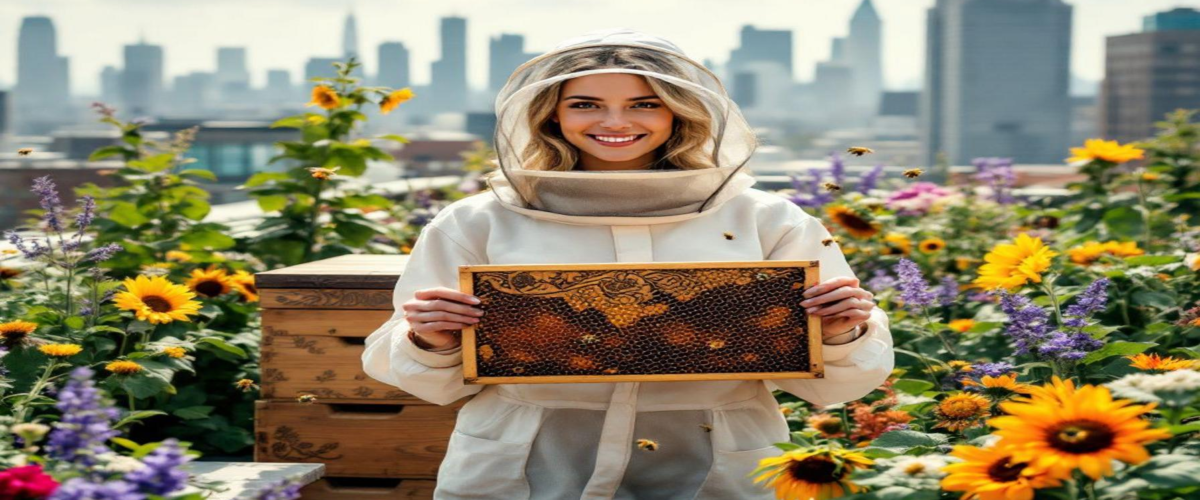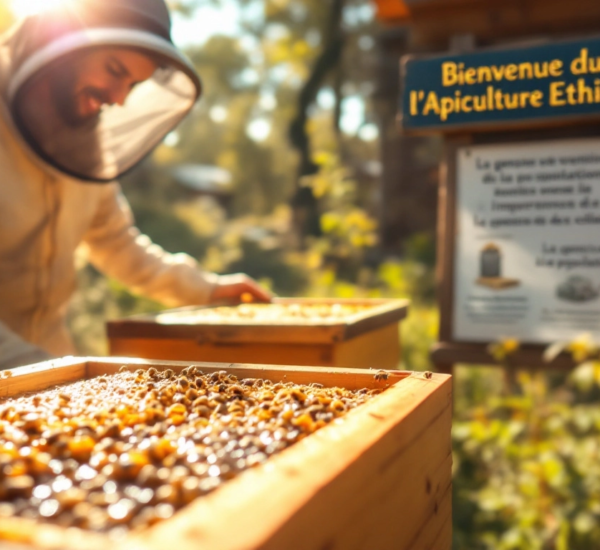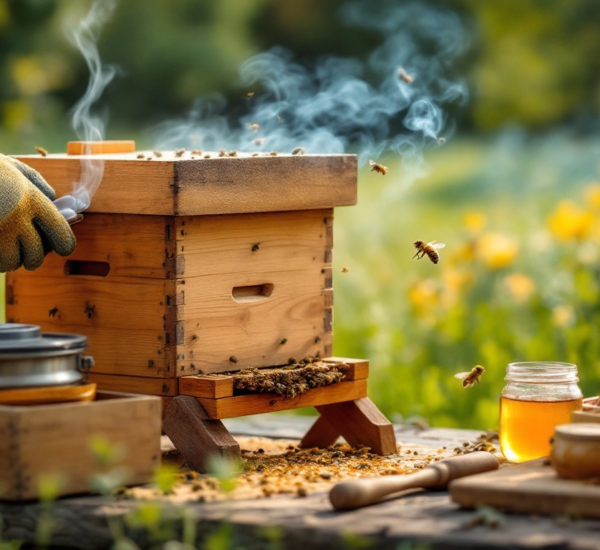Did you know you can support local ecosystems and harvest your own honey right from your backyard, rooftop, or balcony? Urban beekeeping is making waves in cities worldwide, offering both a sustainable hobby and a way to contribute to the environment. If you’ve ever been curious about keeping bees in urban settings, this guide is for you. Welcome to the ultimate urban beekeeping guide where beginners can learn how to get started, choose the right equipment, navigate legal requirements, and enjoy the numerous benefits of beekeeping in the city.
Table of Contents
- What Is Urban Beekeeping?
- The Benefits of Urban Beekeeping
- Urban Beekeeping for Beginners: Getting Started
- Essential Urban Beekeeping Equipment
- Navigating Urban Beekeeping Laws and Regulations
- Frequently Asked Questions
- Conclusion
What Is Urban Beekeeping?
Urban beekeeping is the practice of keeping and maintaining bee colonies in urban environments like cities and towns. Unlike traditional rural beekeeping, urban beekeepers adapt to smaller spaces, utilizing rooftops, balconies, and small gardens as hive locations.
Why Is It Different from Rural Beekeeping?
While rural beekeeping often benefits from expansive farmland and fewer human-activity restrictions, urban beekeeping comes with unique challenges, such as limited space and thoughtful hive placement to coexist harmoniously with neighbors. However, urban environments offer plenty of floral diversity, ensuring bees have access to a variety of nectar sources to thrive.
Who Is Urban Beekeeping For?
Urban beekeeping is perfect for eco-conscious individuals, hobbyists, or anyone looking for a rewarding activity that benefits both the local environment and themselves. No prior experience is necessary to get started, making urban beekeeping accessible for beginners.
The Benefits of Urban Beekeeping
Environmental Benefits
Urban beekeeping plays a vital role in supporting biodiversity by aiding pollination of trees, flowers, and gardens in city landscapes. Bees also help counteract the declining population of pollinators globally, reinforcing the balance of local ecosystems. Learn more about pollination’s impact from experts like the United Nations.
Personal Benefits
As an urban beekeeper, you can harvest your own fresh, delicious honey right at home. Beekeeping is also a low-maintenance hobby that provides numerous mental health benefits, such as relieving stress and cultivating mindfulness.
Community Benefits
Urban beekeepers can educate their communities about the importance of pollinators while fostering a sense of collaboration within neighborhoods. Many cities have beekeeping groups, and joining them cultivates friendships and partnerships.
Urban Beekeeping for Beginners: Getting Started
Choosing the Right Location
Whether you have a small balcony or a spacious rooftop, finding the right location for your hive is key. Look for areas with good sun exposure, access to water, and minimal disturbances from people or pets. Consider practical placement tips in resources such as our guide to choosing a location for beekeeping.
Selecting the Right Bee Species
Not all bees are the same! Some species, such as Italian bees or Carniolan bees, are more docile and better suited for urban areas. Research species that align with your goals and experience level. For a deeper dive, check out this bee species guide.
Learning Basic Beekeeping Practices
Getting hands-on experience is crucial for new beekeepers. Look into local workshops, online courses, or community programs that provide guidance on hive maintenance, safe bee handling, and seasonal hive management.
Essential Urban Beekeeping Equipment
The Basic Toolbox
To start your first hive, you’ll need essential tools such as a hive (Langstroth hives are common for beginners), a beekeeping suit for protection, a smoker to calm the bees, and a hive tool for maintenance. Look for budget-friendly starter kits designed for beginners.
Advanced Tools for Urban Beekeepers
As you gain experience, you may want to invest in tools like honey extractors, pollen traps, and hive inspection cameras. These help enhance efficiency and make it easier to care for your hives.
Maintaining and Storing Equipment
Properly cleaning and storing your equipment ensures its longevity. Keep tools dry, sanitized, and organized after each use to avoid contamination or hive health issues.
Navigating Urban Beekeeping Laws and Regulations
Understanding Local Laws
Before starting, check your city’s zoning laws and permits regarding beekeeping. Many cities regulate hive placement, the number of allowed hives, and proximity to property lines. For country-specific legal information, visit this comprehensive urban beekeeping law resource.
Responsible Practices for Urban Beekeepers
Being considerate of neighbors and pets is essential. Situate hives responsibly and use screens or barriers to guide bee flight paths away from high-traffic areas.
Joining Beekeeping Associations
Becoming a member of a local beekeeping association provides access to resources, mentorship, and insights into advocating for urban beekeeping initiatives.
Frequently Asked Questions
Is urban beekeeping safe for beginners with no experience?
Yes! With proper guidance, urban beekeeping is a safe and rewarding hobby. Start with beginner-friendly workshops and protective equipment, and follow best practices for hive management.
What is the best location for a city bee hive?
The ideal location should have good sunlight, moderate shelter from wind, and easy access to plants and water sources. Make sure it’s away from footpaths or areas regularly occupied by people.
Do I need a license to start urban beekeeping?
Requirements vary by city. Check with local authorities or beekeeping associations to determine if a license or permit is necessary in your area.
How do bees survive in the city?
Urban environments provide diverse floral resources, making it relatively easy for bees to thrive. As long as they are cared for properly, city bees can be just as healthy as their rural counterparts.
Can I keep beehives on a small balcony?
Yes, as long as the balcony has enough space, receives sunlight, and doesn’t disturb nearby neighbors. Rooftop setups with proper fencing are also a great option for small spaces.
Conclusion
Urban beekeeping is a fulfilling journey for hobbyists and eco-conscious individuals alike. From its environmental benefits to the simple joys of harvesting fresh honey, this practice revitalizes urban ecosystems while connecting beekeepers to nature in profound ways. If you’re ready to take the first step, gather your tools, research local laws, and prepare to join the buzzing world of urban beekeeping. Start small, stay curious, and explore additional resources like our guide on beginner beekeeping tips or how to harvest honey.




